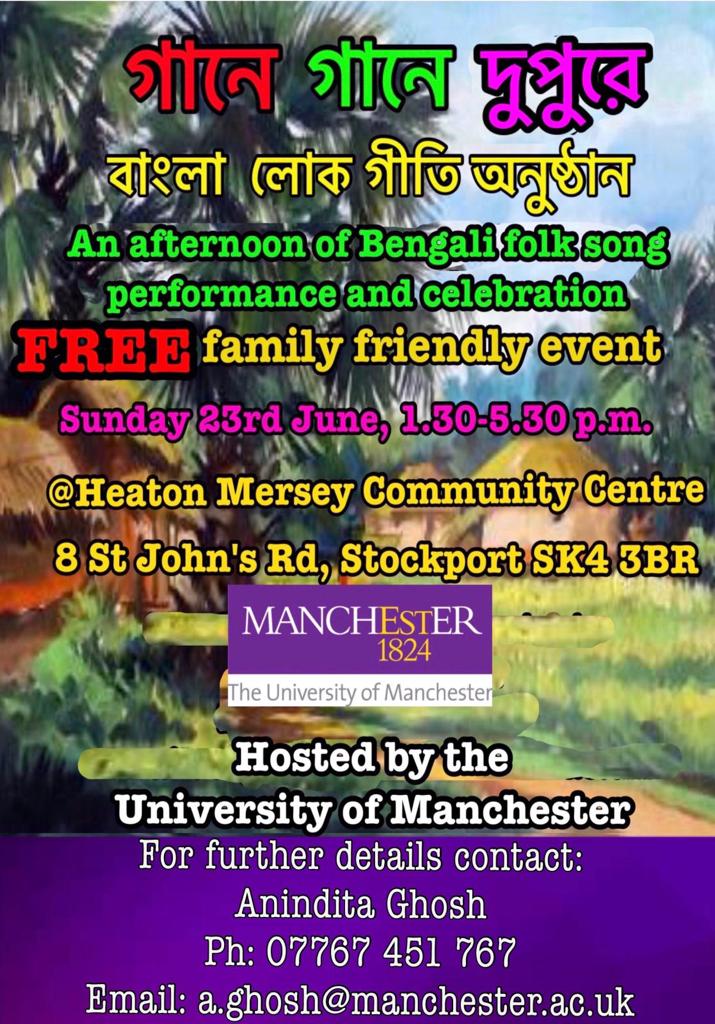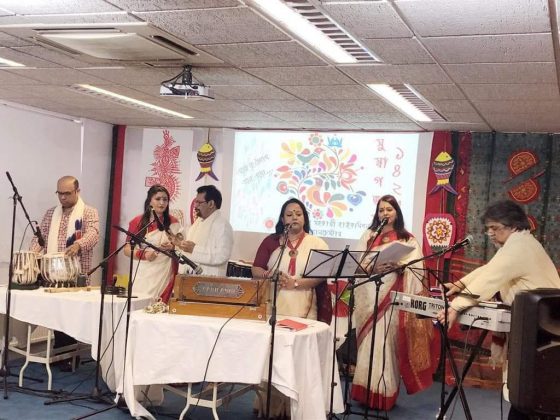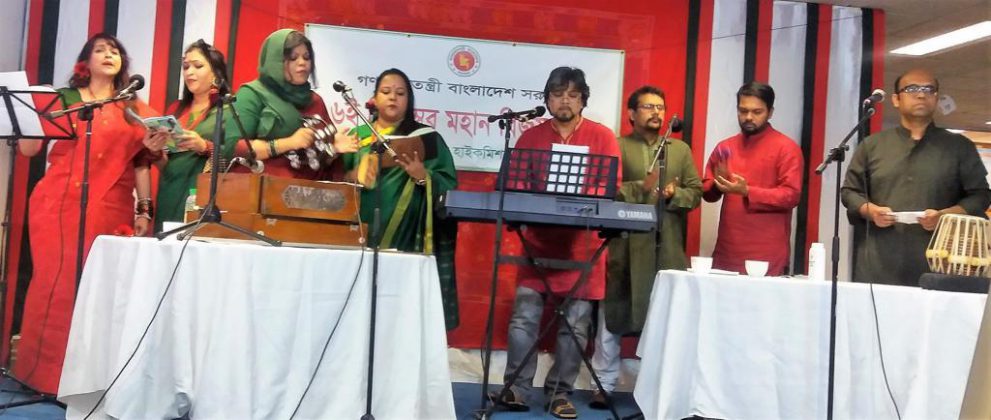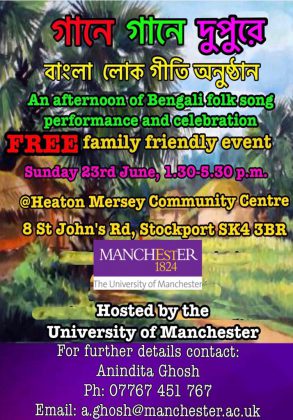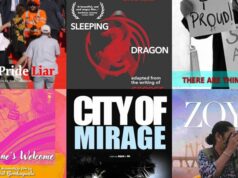The Mancunians are gearing up to experience an afternoon of Bengali folk songs at the Heaton Mersey Community Centre, in Stockport on 23 June. Hosted by the University of Manchester at the Heaton Mersey Community centre, this day-long workshop will be a public engagement activity involving Bengali folk songs connected with the work, life and rituals of the community, as it would have been in a rural Bengal setting. The workshop timing will be between 1.30-5.30 pm.
The songs will be sung and presented by Bengali speakers. Bengali is spoken in Bangladesh, in the Indian state of West Bengal and is in much use in and around Manchester, including the areas of Oldham, Burnley and Rochdale.
This engagement will be celebrating a heritage that continues to be overlooked in the contemporary diaspora culture, especially among the younger generations.
Prof Anindita Ghosh, Professor of Modern Indian History, University of Manchester and the Organiser and Curator of the event says, “these are songs from rural communities that have been preserved by families, handed down the generations through oral traditions, but these artists and their music have not been given a bigger platform, nor been considered commercially like some other music like the popular baul or bhatiali music from Bengal.”
Through this workshop, the participants will be encouraged to come in and present Bengali songs related to the celebration of rural work and life, like the songs of handloom weavers, boatmen and suchlike, added Prof Ghosh.
In thinking about these songs, there can be traced striking similarities with songs from the nineteenth century in Lancashire, more specifically, ballads registering the misery of modern industrial living and labour, she pondered.
Jennifer Reid, broadside ballad performer and local historian, has established exciting linkages between Lancashire and Bengali folk songs on similar themes, particularly with the textile industry, and will be singing in this workshop.
The workshop will be led and co-produced by scholars and performers. Academics from Manchester University will be providing historical context and analysis for the songs, outlining the fundamental importance of capturing the heritage preserved in past oral cultures, for shaping current diasporic identity, and for linking history and culture.
Performers will introduce and explain the provenance of the songs, the singers traditionally associated with them and their significance in the Bengali cultural context.
Bengali speaking populations in Manchester and around will benefit from a rediscovery of their lost heritage, and the importance of oral cultures in South Asian traditions. The Bengali communities are interested in celebrating and preserving such heritage for the younger generations so that they may take pride in their ethnic roots and culture. Besides, the intangible cultural heritage of Bengali economic migrants from the 19th and 20th centuries has a place in British society and should be explored in relation to the industries that they worked in.
Entry to the event will be free. For further information and details write to Email: a.ghosh@manchester.ac.uk

Rahul Laud
Rahul Laud wears many hats. He is a senior journalist, and works as the Associate Editor of Asian Lite, based out of Manchester, UK. He is the Curator and Facilitator of SAJDA Festival and is a regular volunteer for the Art of Living and the IAHV global charities. He is a musician himself and teaches the tabla to the younger generation of music enthusiasts.
